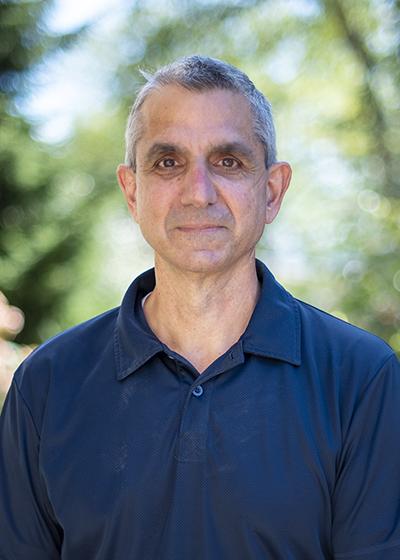- Title: Professor of Meteorology and Atmospheric Science
- Department: Department of Meteorology and Atmospheric Science
ABOUT
Q: What are your current research interests?
My research is focused on all things related to atmospheric radiation. As a result, I work with data from ground- and satellite-based remote sensing instruments, on assimilation of remotely sensed data into numerical weather prediction models, and on various aspects of Earth’s radiation budget, cloud systems, weather, and climate. Atmospheric radiation works its way into many physical processes, and so, too, does my research as a result.
Q: What lead you to your specific field and when did you know you wanted to pursue a career in your specific field?
After obtaining my doctoral degree in Physics, serendipity brought me into contact with a professor whose focus was atmospheric radiation. This professor was so kind and their research so interesting that they fully entrained me into their field. Over the years, I have come to learn that EMS has many, many research topics about which I would much enjoy learning more about.
Q: What is the most rewarding part of your work and what challenges you?
Every day I get to work with smart, dedicated people who are both doing amazing things and wanting to do some good in the world. There is no greater fortune to me than getting to work with such folks. A great challenge to me is keeping up with them all!
STUDENT RECRUITMENT
Q: What makes the College of Earth and Mineral Sciences unique and why come to Penn State and choose a major in EMS?
The College of EMS has a strong focus on energy and the environment, and developing the materials necessary to make significant, positive contributions to them both. These are important problems for us to be working on here at the beginning of the 21st century.
Q: What are some of the career opportunities for students who a choose major in your field?
Meteorologists graduating from our program, in addition to having courses with professors and instructors who perform research in the fields that they teach, have math training, some statistics training, programming experience, and access to excellent communicators. All of these skill sets are highly valued at this time in the 21st century, leading to job opportunities in all sorts of different fields across industry, government, and academia.
Q: What types of research or hands-on learning are available within your department?
Motivated students can become entrained into research with our faculty. They also have many summer research internship possibilities available to them around the United States. The communication-focused students have ample TV, radio, and weather communications experiences available to them within Meteorology itself. Lots to choose from if motivated to seek out all of the possibilities.
Q: What do you like most about mentoring students?
Students constantly confront me with new ideas and ways of seeing and operating in the world. Interacting with students demands that I continue to grow along with them but in different ways. Keeping up with these demands is not always easy, but, at the end of the day, I am always much, much richer for trying to do so.
PERSONAL
Q: Can you tell us a fun fact about yourself?
In the past couple of years, renovating houses for my family members has become my main hobby. It is wonderful to get tangible results on projects that demand physical work. What a wonderful counterbalance to the academic endeavors at work which are mental in nature and may take years to bring to fruition.
Q: Did you go to college with the intention of getting the job you have now? If not, briefly explain how you came to the position you're in now at the University.
Nope! By pure serendipity, I met a professor at a workshop in a pastry line around 10:30 a.m. on a Sunday morning. This meeting changed everything, allowing me to transition from Physics to Atmospheric Science soon after receiving my Ph.D. in Physics.
Q: What is the most helpful advice you’ve received?
Be realistic about one’s strengths and weaknesses, and never give up.
Q: What professional accomplishments are you most proud of?
I am not most proud of any one thing. I have done my best to contribute to my department and discipline, all the while surrounded by really talented individuals. I must run hard to keep up with all of these folks, and I would like to think that I have successfully done so up to now. Perhaps this is what brings me the most satisfaction. Now, whether or not I have really kept up with my colleagues is an entirely different question, and one that I do not think about too much. I will just keep running as hard as I can, until, for one reason or another, it is no longer necessary for me to do so.


